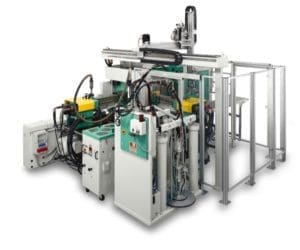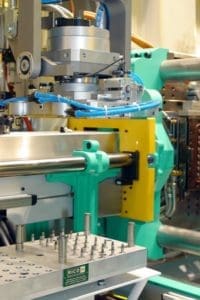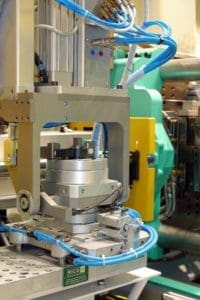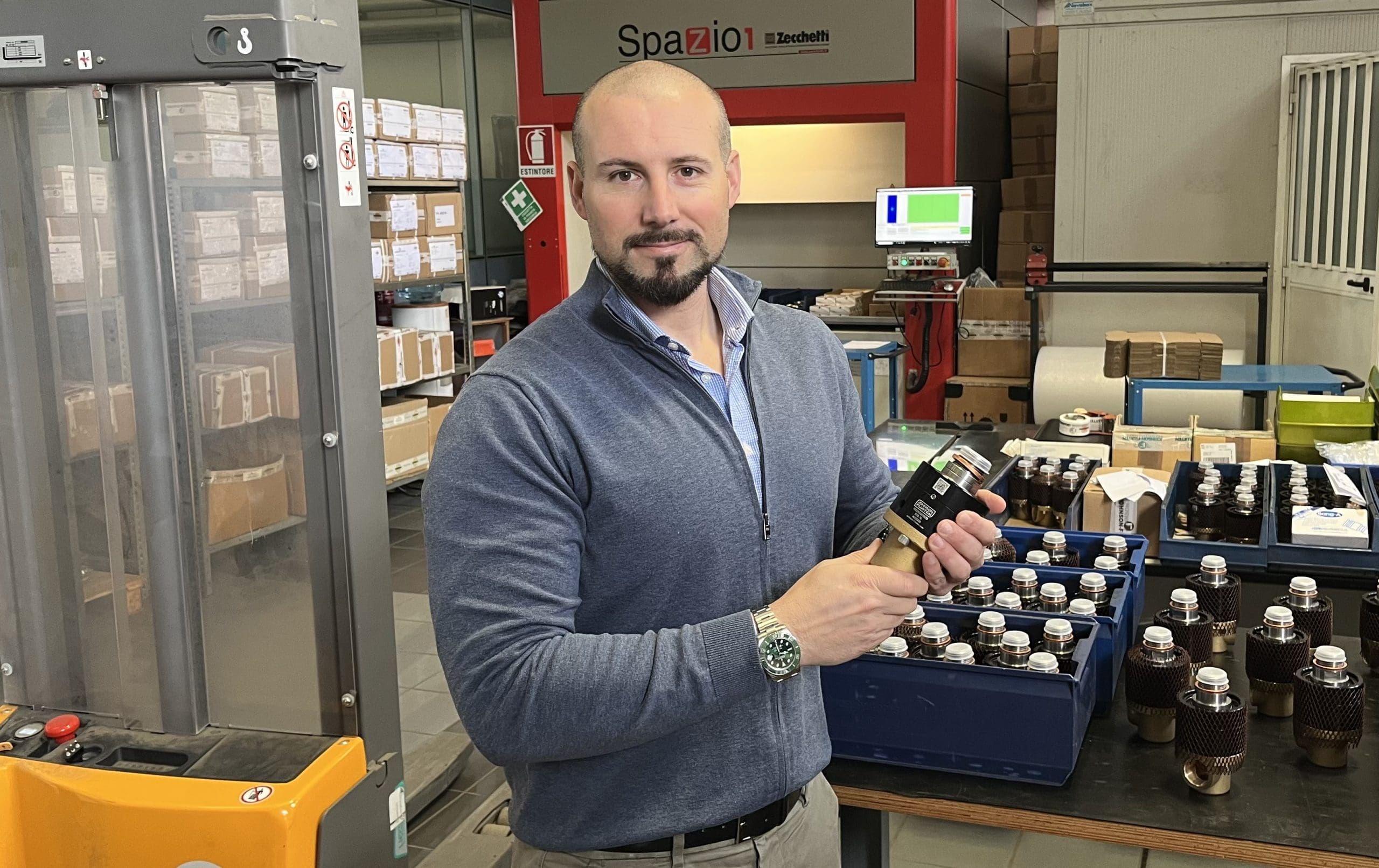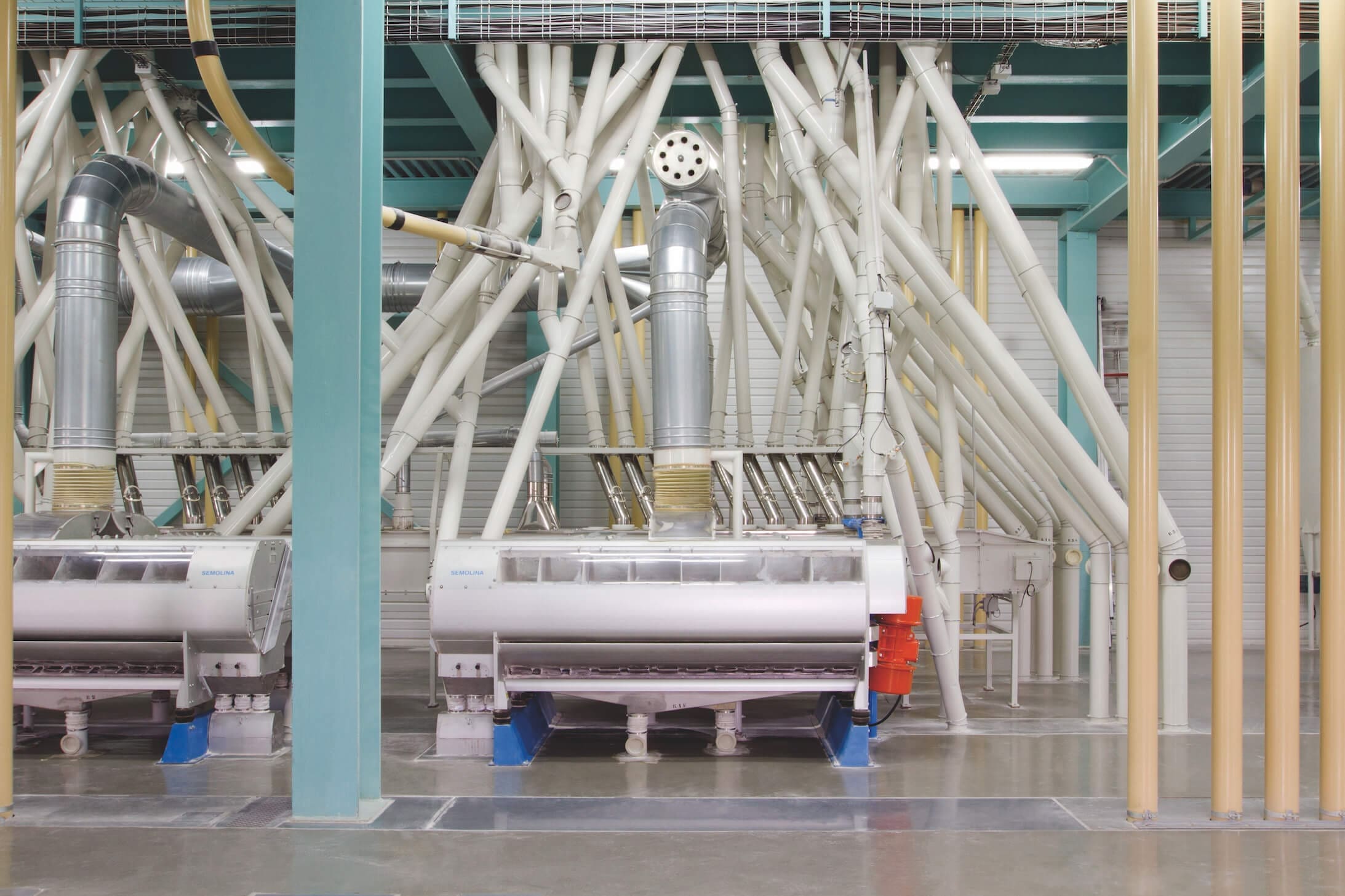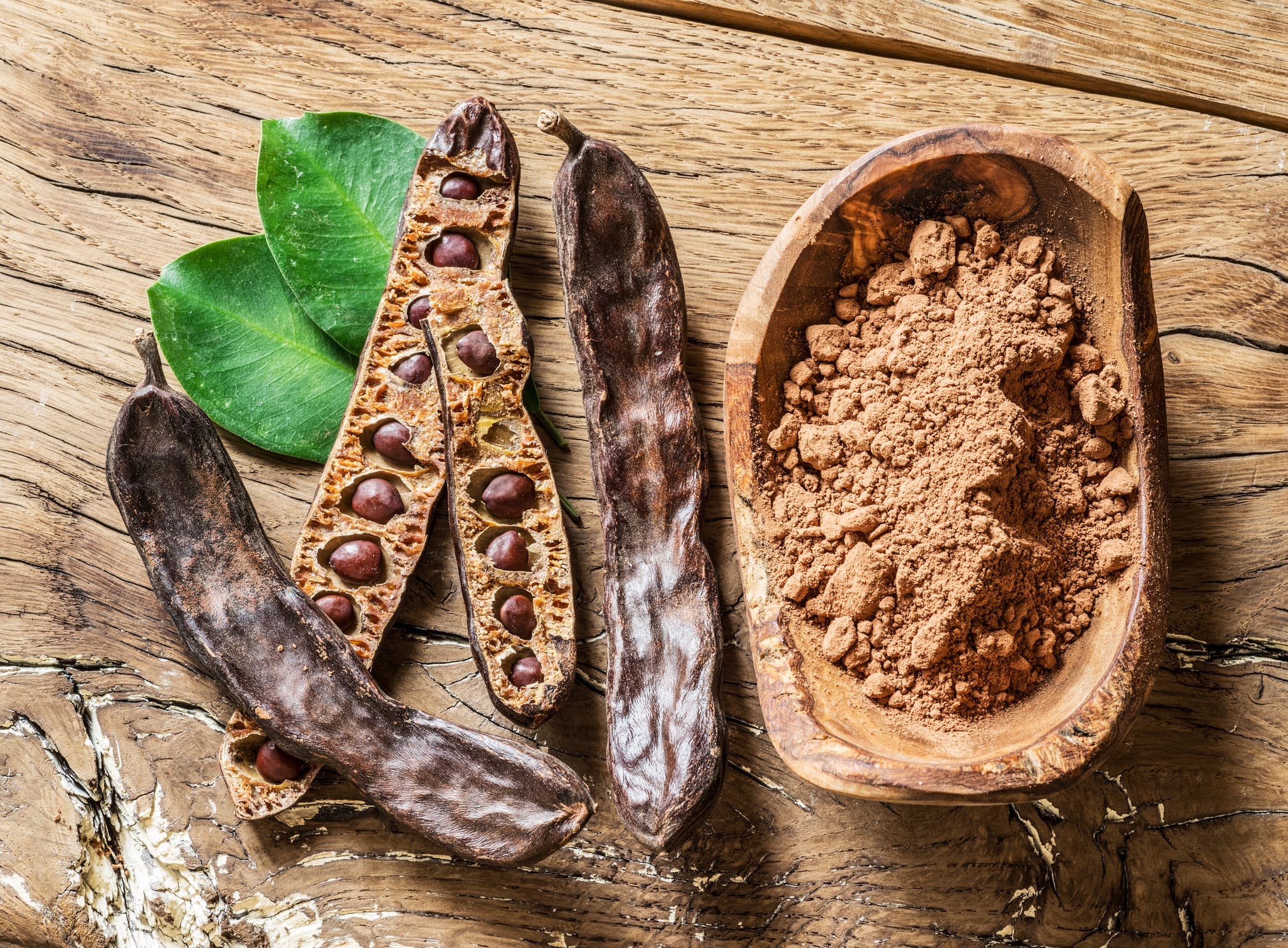Liquid silicone (LSR) dosing membranes are frequently used to ensure that viscous fluids can be dispensed cleanly. These membranes are particularly common in the food industry, where they are used to stop products such as ketchup and honey from leaking or dripping. Dosing membranes can also be found in shampoo bottles. Thanks to the technology, bottles can be turned upside down without the contents leaking out. Fluids can be dispensed, usually through a cross-shaped slit in the membrane, by squeezing the bottle.
The production of dosing membranes involves combining elastomers and thermoplastics. In a one-component (1K) process, the elastic dosing membrane is molded out of silicon and then modified in a number of stages depending on the required application.
Two-component (2K) procedures are used to join the elastic membrane with a solid plastic ring. This makes it easier to work and fit the membrane. Precision mold production technology is the most decisive factor in this process, although considerations such as the right choice of material as well as automation also play an important part. Innovations such as temper-free materials mean that there is an ever-stronger focus on 2K processes.
Based in Thalheim bei Wels in Austria, RICO Elastomere Projecting GmbH has spent years developing the required mold manufacturing technology, and is firmly established as an expert partner for custom elastomer projects.
1K – the standard technique
Membranes are still commonly produced using 1K injection molding. This requires complex assembly stages following production, such as attaching the membrane to the bottle closure.
The drawbacks of this procedure are clear. After production, the parts drop into a container below the machine. The next step involves post-operational processes such as tempering and talc-powdering of the LSR membrane, in order to stabilize the material, extract excess siloxane and stop the individual parts sticking together.
Then the membranes are separated so that they can be positioned and fitted on the closure. This is followed by slitting the membrane.
The entire production procedure is time-consuming and also cost-intensive due to the various processing stages. Controlled processing of elastic parts increases the cost and time required still further.
2K processes: unrivalled precision in mold production technology
Rico has been producing membranes using a 2K process for more than a decade.
Two injection technologies are combined in a single mold: in one half, a ring is produced, from polyamide (PA) for example, using a conventional injection molding approach, while in the other half, the LSR membrane is mounted on the thermoplastic ring using a liquid injection molding or LIM technique. This 2K process demands special know-how in mold design.
Precise temperature control and accurate separation of the mold’s cooled thermoplastic side and heated LSR side are essential. Rico has built on the comprehensive expertise of its RICO GROUP partner HTR.
The heat treatment specialist advises Rico on the options for refining the various types of high-quality steel that Rico uses in its molds.
This guarantees outstanding product quality and long useful lives.
Choice of material a decisive factor
The choice of materials is especially important when it comes to elastomer processing.
Rico has access to materials data collected over the past 20 years, and also works closely with raw material producers, meaning that newly developed materials can also be taken into consideration.
When using temper-free materials that comply with food safety regulations, a slit can be made in the LSR membrane immediately after injection molding. This removes an entire work step, with the slit made straight after the production process. The combination of LSR and a solid plastic ring as a means of support simplifies processing of the membrane during the manufacturing process, right through to the final assembly of the sealing cap.
Effective automation concept
The PA rings are made using a hot runner nozzle over a sub-runner. An automated rotary mold carries the premolds to the LSR side of the mold, where the components are injected directly onto the PA ring, using a single cold runner nozzle for each component.
At the end of each cycle, the 2K membranes are removed from the mold under controlled conditions by a handling system, which allows the form to close again, meaning that production can continue.
There is enough time during the subsequent closing and injection process to make cross-slits in the membranes outside the machine. For this purpose, a removal robot carries the molded parts to a special cutting and punching device. After the parts have been centered “online”, the slit is made. This procedure is suitable for both 2K components and pure LSR articles.
Finally, the parts are removed from the processing unit on a conveyor belt. This approach removes the need for assembly and processing later on, as the dosing membrane is ready for application and can be mounted directly in the bottle closure.
With a view to further innovation and the interlinking of industrial manufacturing processes in accordance with Industry 4.0 principles, industry leader Rico is also considering connecting the production of sealing caps and dosing membranes.
In line with the group’s strong reputation for production efficiency, this would mean that most of the required processes were carried out during production.
The use of 2K technology to manufacture dosing membranes makes implementing such a highly automated process far simpler. A number of possible design proposals are already on the drawing board.
Development and construction as basis for production
In this context, Rico is also concentrating on production-driven serial and assembly construction, providing customers with end-to-end project support in its role as a primary contractor. Shrinkage and distortion can be calculated in advance for a wide range of materials with the help of simulations. Finite element method (FEM) calculations, which are best known for their aerospace applications, are also used. These calculations allow for realistic simulations of parts, such as assembled seals, on a screen, as well as component optimization. All developments are assessed and tested by means of manufacturability checks before the parts are produced. Customers also receive support and training during the commissioning and handover of production plant, enabling them to take advantage of the complete service portfolio. Clients can either manufacture parts themselves or have them produced at one of the RICO GROUP’s high-end production facilities.
Favorable outlook in niche market
Specialized plastics processing – the automated production and refining of 2K LSR parts – is growing in importance, especially in the packaging industry. The group is focusing on the combination of plastics and conventional elastomers such as silicone and rubber. There are only a handful of processors worldwide with such specialist knowledge. This is an attractive, high-potential market – demand for such combinations is rising in more and more industries, such as the automotive and medical technology sectors, and materials manufacturers are constantly bringing new materials with higher performance standards onto the market.
Summary
Mold manufacturing technology and top-quality materials are the cornerstone of dosing membrane production. Depending on the number of items, stable and automated processes almost always outperform semi-manual solutions on account of their superior quality standards and by removing the need for subsequent assembly work. Greater investment in such equipment often pays dividends in the short term, if all of the related variables are taken into account.
About the RICO GROUP
The RICO GROUP is a premium, full-service global supplier for custom elastomer and plastics projects. The group forms a powerful international technology and production network with a total of four sites in Austria, Switzerland and the US.
Its portfolio ranges from production of injection molds and advice on developing components right through to serial production of customized components.
The focus is on processing elastomers, in particular liquid silicone (LSR) and solid high temperature vulcanizing silicone (HTV). Components are produced using one-, two- or multi-component injection molds, including LSR + thermoplastic, rubber + thermoplastic, LSR + metal, LSR + LSR, and thermoplastic + LSR + metal inserts.
Molds and molded parts are used in a host of different sectors, such as the medical technology, automotive and plumbing supplies industries. Although the components are not visible at first glance, they are central to product functionality and safety.
For further information, visit www.rico-group.net

